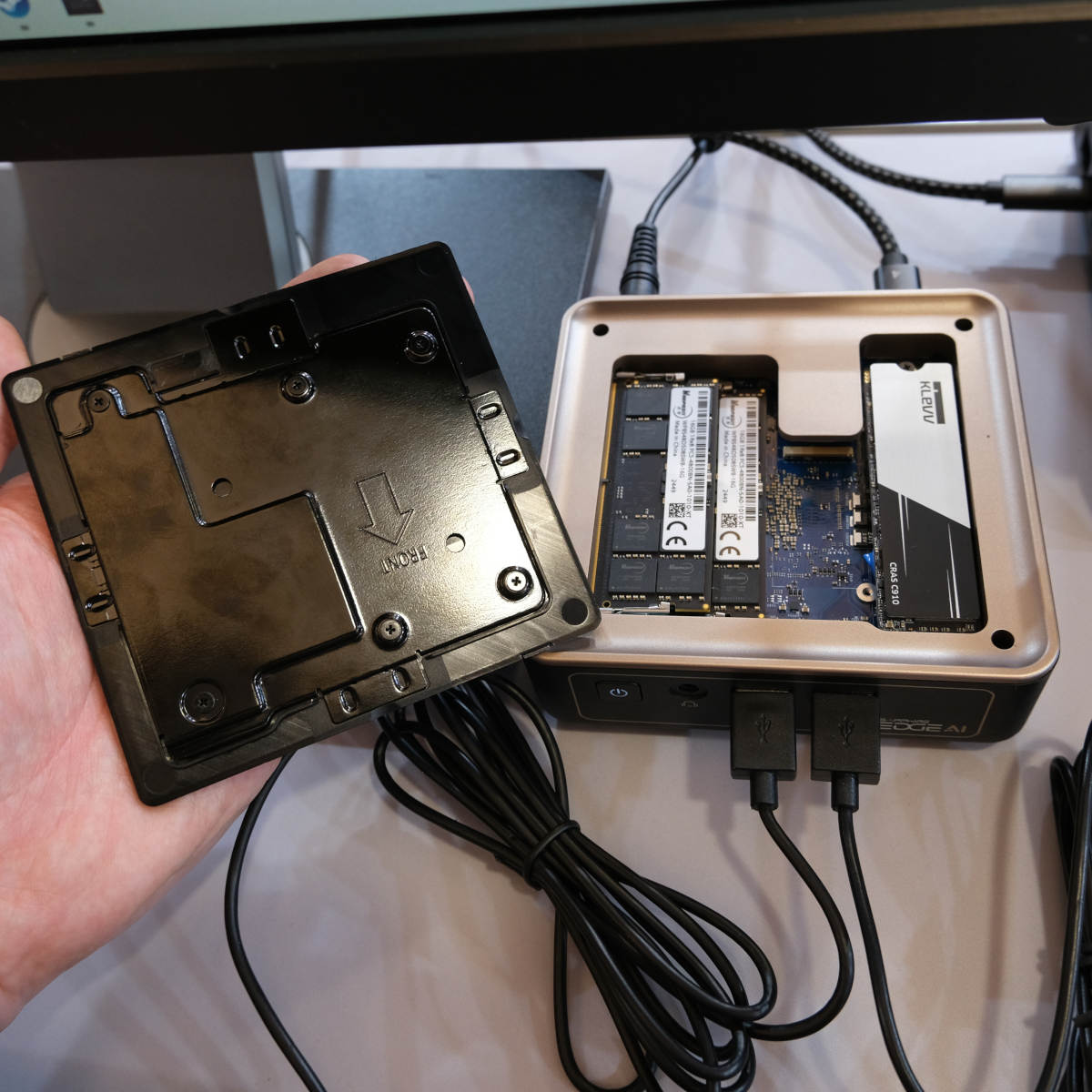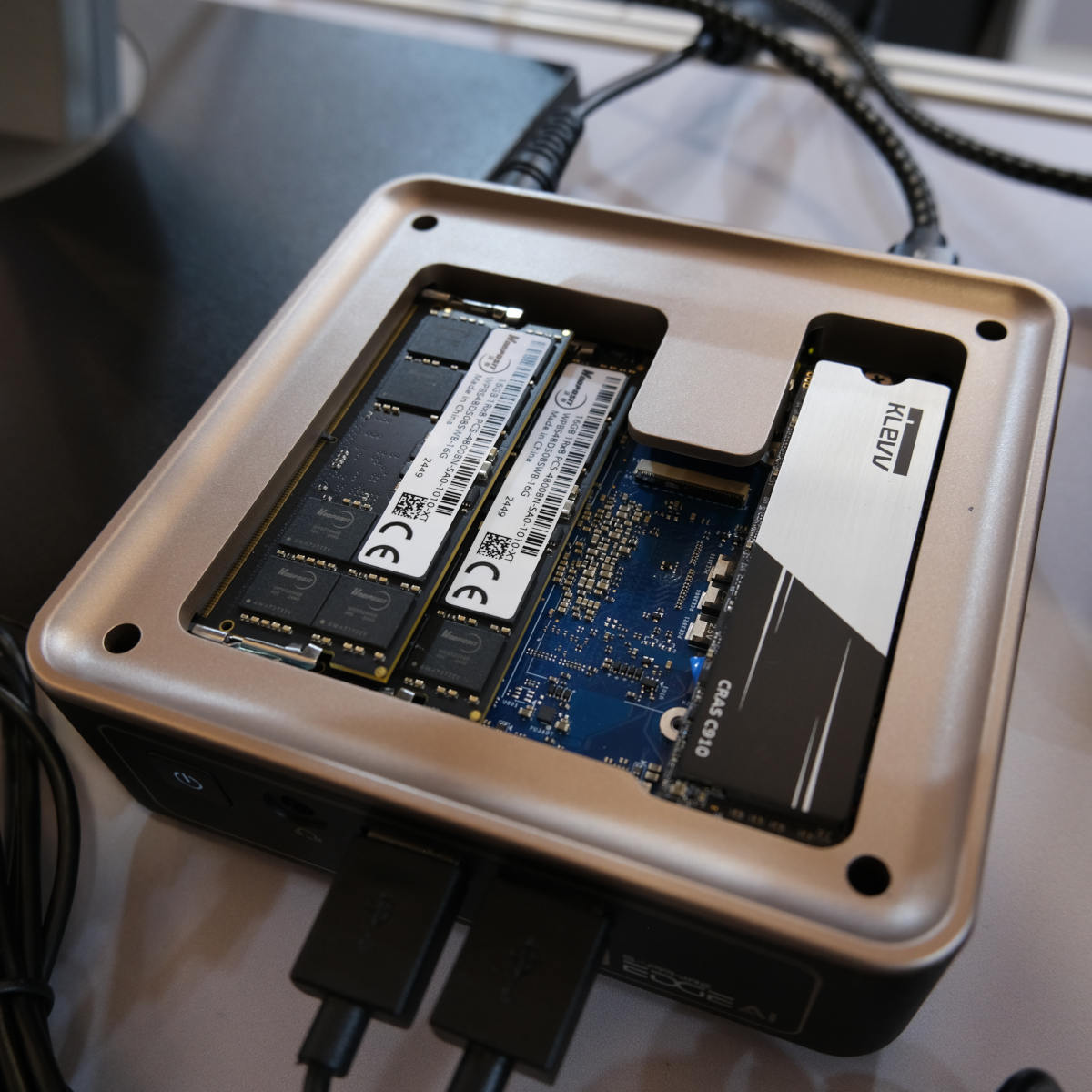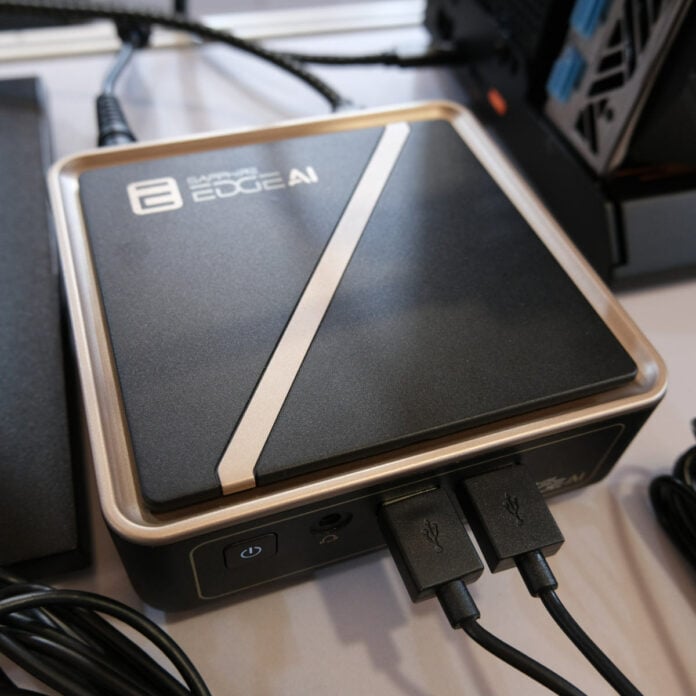While Ryzen AI 300 Series processors are perfect for mobile devices, they’re an ideal fit for mini PCs too. Put one of these chips in a small shroud, and you have a system that can deliver a potent punch across the board thanks to its CPU, GPU, and NPU performance. Keenly aware of this potential, Sapphire aims to put AMD’s APUs to work with its upcoming Edge AI Series.
Sapphire conveniently incorporates part of the processor name of each Edge AI SKU into its name, with the flagship Edge AI 370 sporting a Ryzen AI 9 HX 370. Using this chip nets you up to 50 TOPS of performance from the NPU alone, growing to 80 TOPS once you include the CPU and GPU. The brand plans to offer two other more-affordable alternatives that tag in either Ryzen AI 7 350 or Ryzen AI 5 340 to handle processing duties. Outside of this specification, the only other difference between each system is the amount of RAM they boast at either 32GB or 16GB apiece.
| Specs | Edge AI |
|---|---|
| CPU | Ryzen AI 9 HX 370 Ryzen AI 7 350 Ryzen AI 5 340 |
| RAM | 32GB DDR5 SO-DIMM* 16GB DDR5 SO-DIMM** |
| Storage | 1TB NVMe SSD |
| Front I/O | 3.5mm audio jack (x1) USB 3.2 Gen 2 (10Gb/s) Type-A (x2) |
| Rear I/O | 2.5Gb/s Ethernet (x1) HDMI 2.1 (x2) USB 4 (40Gb/s) Type-C (x2) (with PD 3.0) USB 3.2 Gen 2 (10Gb/s) Type-A (x1) USB 2.0 (480Mb/s) Type-A (x1) |
| PSU | 19Vdc, 6.32A, 120W power adapter |
| Dimensions | 117 x 111 x 30mm |
**with Ryzen AI 5 340.
Measuring in at 117 x 111 x 30mm, Edge AI is a dinky little machine reminiscent of a Mac Mini. There’s no mistaking it for Apple’s device, though, as it dons an eye-catching black and gold colour scheme and proudly flaunts its branding atop its shell. As one should expect from a Sapphire product, the build quality here is suitably premium.
A Sapphire PR representative at Computex tells me that, in addition to the specifications listed above, the company is considering selling the PC as a barebones kit. So, if you want to save a few bob up front and source your own SO-DIMM modules and storage, you should be as golden as Edge AI’s chassis.
Though this PC is small, it offers plenty of connectivity for its size. While USB Type-C ports are curiously missing from the front of the body, you’ll find two USB 4 ports round back. Complementing those speedy connections are four USB 3.2 Gen Type-A headers, and a single USB 2.0. Meanwhile, networking is nice and zippy thanks to WiFi 7 support and a 2.5Gb Ethernet. Finally, connecting Edge AI to multiple monitors is a doddle too thanks to its two HDMI 2.1 ports.


A single fan on the bottom of Edge AI takes care of cooling, but you’ll want to turn your attention to the top of the PC in order to access important innards. Don’t worry about reaching for a screwdriver, though, as Sapphire has worked some magnetic magic in its design making popping off the top panel easy peasy.
You can expect Edge AI PCs to hit the market later this year, with Sapphire currently gunning for a launch around June or July 2025. I’ll certainly try and get my hands on one, as it seems like a perfectly dinky machine for work and some light gaming too.
For more finds from Computex 2025, make sure to follow Club386 on Google News as there’s plenty of stuff to see from this year’s exhibition.


